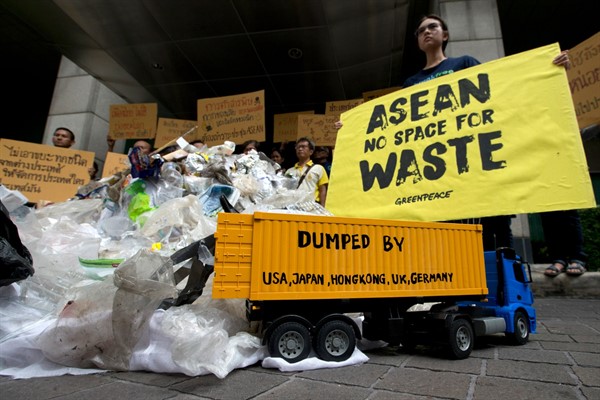Plastics, e-waste and other hazardous waste are routinely traded across borders in what amounts to an “out of sight, out of mind” approach for the rich countries that produce them. The story is more complicated for the communities that receive and dispose of the waste.
Hazardous waste poses risks to the health of local communities and the environment, spurring attempts to ban its movement across borders. But in countries like Turkey, Vietnam and Ghana, waste is often processed to extract its residual value. The important source of income it provides explains why those efforts have been of limited success and questionable usefulness.
To discuss the risks but also the complexity of the international trade of hazardous wastes, Kate O’Neill joins Peter Dörrie on Trend Lines. O’Neill is a professor at the University of California Berkeley’s Department of Environmental Science, Policy and Management, where she specializes in researching waste, the circular economy and global environmental governance.
Listen:
Download: MP3
Relevant articles on WPR:
Cuts to Waste Imports in East Asia Put Pressure on World’s Producers
E-Waste Is Taking Over the World. 5G Will Make It Even Worse
Can the World Win the War on Plastic?
Trend Lines is produced and edited by Peter Dörrie, a freelance journalist and analyst focusing on security and resource politics in Africa. You can follow him on Twitter at @peterdoerrie.
To send feedback or questions, email us at podcast@worldpoliticsreview.com.




